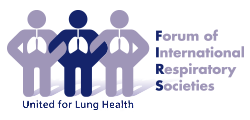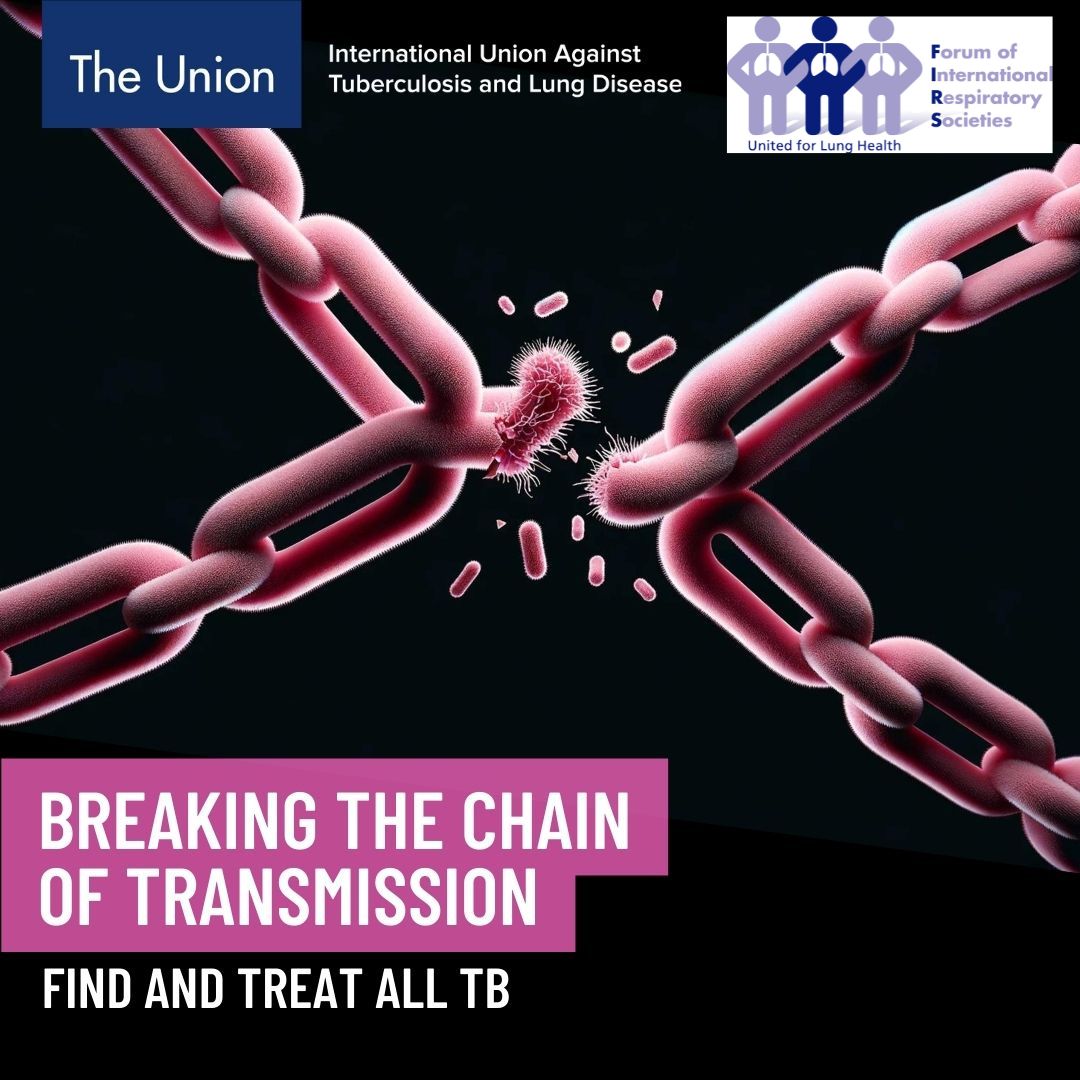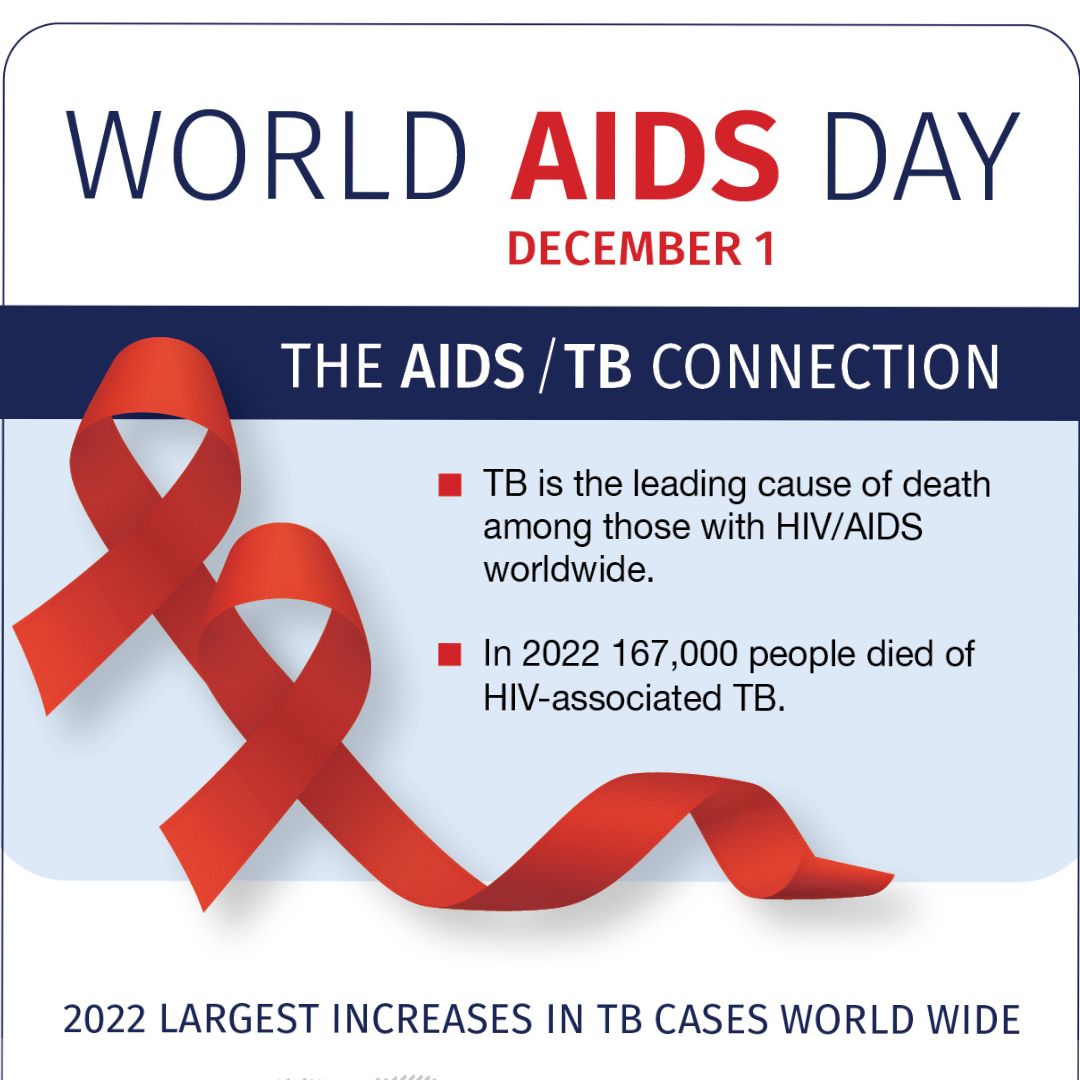World AIDS Day, held annually on the first day of December each year since 1988, is an opportunity for people around the world to join in the fight, show their support for those living with human immunodeficiency virus (HIV), and commemorate the lives of those who have died.
The Forum of International Respiratory Societies (FIRS), an organization comprised of the world's leading international respiratory societies working together to improve lung health globally, supports these efforts through research, patient care and advocacy.
Although many important advances have been made in the understanding and treatment of HIV, World AIDS Day serves as an important reminder of the continuing worldwide toll of this disease. The World Health Organization estimates that HIV caused 1.5 million deaths globally in 2013, with 35 million people infected overall and 2.1 million newly infected in 2013.
The lungs are commonly involved in AIDS, leading to significant morbidity and mortality worldwide. Pulmonary manifestations of AIDS may include tuberculosis (TB), Pneumocystis jiroveci pneumonia, bacterial pneumonia, and pulmonary Kaposi's sarcoma. Globally, AIDS has lead to a resurgence of TB in many low- and middle-income countries, and TB is the leading cause of death among people living with HIV. Pneumocystis pneumonia is another frequent cause of death in AIDS patients. Recent evidence suggests that HIV infection may be a risk factor for both COPD and pulmonary hypertension.
"Our understanding of AIDS and AIDS-related illnesses has greatly advanced over the past three decades, and has made it possible to envision a future without any deaths from AIDS. Sadly, the fight is far from over," said ATS president Tom Ferkol, MD. "While much progress has been made, the ongoing battle against AIDS will require sustained efforts from both public and private organizations and individuals." The members of FIRS call on governments, health care programs, clinicians, public health specialists and non-government organizations to strengthen their responses to the global burden of HIV infection and AIDS by:
- Increasing awareness of the continuing global threat of HIV-related disease;
- Improving the health outcomes of people living with HIV through patient care and research;
- Adequately funding research into improved treatments and treatment strategies;
- Reducing the incidence and severity of HIV-related disease by strengthening mother-to-child transmission prevention programs and increasing the early use of antiretroviral therapy;
- Improving HIV education in at-risk communities to reduce the incidence of new HIV infections; and
- Reducing HIV-related health disparities and inequities.
These efforts will build on the progress that has been made in reducing the death and morbidity caused by this devastating disease.
References:
- HIV/AIDS-Related Lung Disease
- Tuberculosis
- Mediacenter: HIV/AIDS
About the Forum of International Respiratory Societies (FIRS)
The Forum of International Respiratory Societies (FIRS) is an organization comprised of the world's leading international respiratory societies working together to improve lung health globally: American Thoracic Society (ATS), American College of Chest Physicians (ACCP), Asociación Latinoamericana De Tórax (ALAT), Asian Pacific Society of Respirology (APSR), European Respiratory Society (ERS), International Union Against Tuberculosis and Lung Diseases (The Union) and the Pan African Thoracic Society (PATS). The goal of FIRS is to unify and enhance efforts to improve lung health through the combined work of its more than 70,000 members globally.




